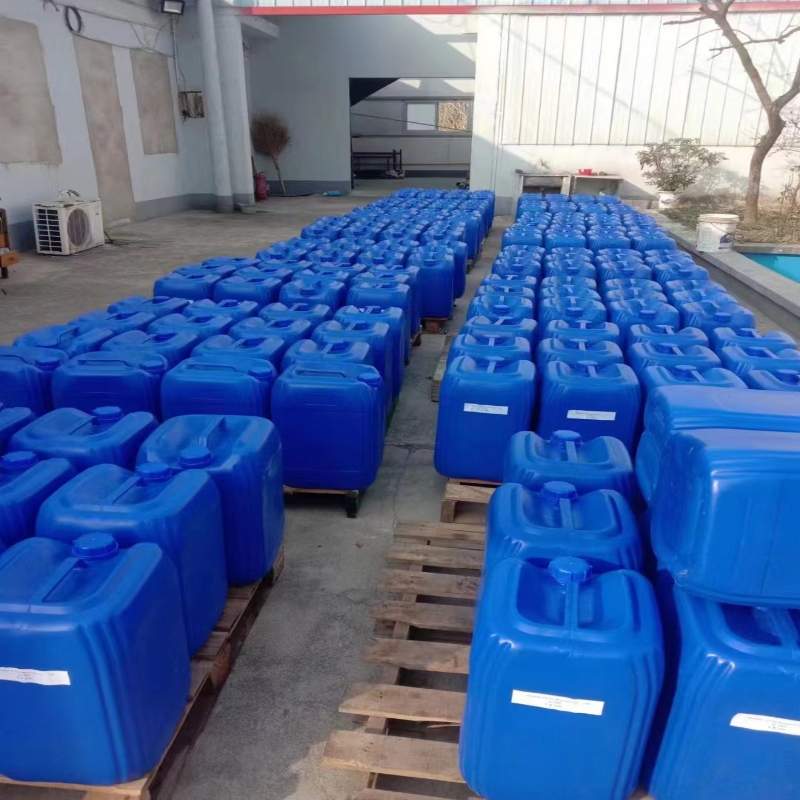-
Categories
-
Pharmaceutical Intermediates
-
Active Pharmaceutical Ingredients
-
Food Additives
- Industrial Coatings
- Agrochemicals
- Dyes and Pigments
- Surfactant
- Flavors and Fragrances
- Chemical Reagents
- Catalyst and Auxiliary
- Natural Products
- Inorganic Chemistry
-
Organic Chemistry
-
Biochemical Engineering
- Analytical Chemistry
-
Cosmetic Ingredient
- Water Treatment Chemical
-
Pharmaceutical Intermediates
Promotion
ECHEMI Mall
Wholesale
Weekly Price
Exhibition
News
-
Trade Service
International crude bulls may usher in a positive situation: OPEC production fell sharply in the latest month, and officials at the US Department of Energy revealed that they seek to suspend the sale of oil reserves
.
On Thursday, December 1, Eastern time, the media disclosed the results of a survey based on dissemination tracking data, information from officials and forecasts of some consulting firms, showing that OPEC in November is expected to reduce oil supplies by 1.
05 million barrels per day compared with October, roughly in line with the scale of the new OPEC+ agreement, the largest monthly oil production decline since mid-2020
.
According to the survey, OPEC's total oil production is expected to fall to 28.
79 million b/d in November, with Saudi Arabia's production falling by 470,000 bpd to 10.
44 million bpd, and other Persian Gulf producers, such as Kuwait and the United Arab Emirates
, following suit.
Also on Thursday, Doug MacIntyre, deputy director of the U.
S.
Department of Energy's Office of Petroleum Reserves, revealed in Congress that the Department of Energy is seeking to suspend Congressionally authorized sales of the Strategic Petroleum Reserve (SPR) in order to replenish the emergency reserve
of SPR.
MacIntyre told the Senate Energy and Natural Resources Committee that the Department of Energy is seeking to stop or delay sales
in fiscal years 2024 to 2027.
"While we're trying to refill the SPR, it doesn't make sense
for us to release oil," he said.
”
If the DOE's request is approved, it could affect the size of 147 million barrels of oil
.
According to data compiled by research firm ClearView Energy Partners, Congress has authorized the sale of 147 million barrels of oil in fiscal years 2024-2027 to fund legislative initiatives unrelated to oil, including 35 million barrels
in fiscal 2024.
However, the day before MacIntyre's speech, Amos Hochstein, an energy security adviser to US President Joe Biden, said on Wednesday that the White House would seek to replenish the SPR
when oil prices "persistently" at $70 a barrel.
He did not say how long
that price would need to be maintained when he started buying back crude.
The $70 price was more than $10 below Wednesday's closing price of $80.
55 per barrel for the U.
S.
WTI front-month contract and 13% below Wednesday's
closing level.
Some commentators believe that Hochstein's statement means that the Biden administration intends to withdraw the buyback plan announced in mid-October, clarifying that buybacks will only begin when oil prices are below $70
.
Earlier this week, some media said that OPEC+ would "seriously discuss further production cuts" at the oil production policy meeting on Sunday, December 4, but since then, some media quoted representatives of OPEC+ countries as saying that OPEC+ will maintain January output at this
weekend's meeting.
On Thursday, the media also pointed out that OPEC's efforts to cut production will be partially offset
by production increases in other OPEC+ countries.
Russia's oil production, including crude and condensate, reached 10.
9 million b/d in November, the highest level
in eight months, according to data from CDU-TEK, an agency of the Russian Energy Ministry.
And also according to official estimates, Kazakhstan's production surged by 348,000 b/d to 1.
89 million b/d
in November due to the resumption of production at the domestic Kashagan field.







